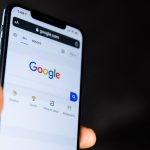Anthropic says its AI will not be used to spy on customers, even in government contracts. Here is what that means for AI governance, enterprise trust and defence partnerships.
Why young South African’s battle without hourly smartphone dose

Recent survey results point to a rather concerning reality of how young South Africans may be addicted to their smartphones due to the time spent on mobile gadgets.
The majority cannot go a whole hour without their smartphones, according to Kegan Peffer, CEO of power bank company Adoozy who points to why most rely on smartphones so much in their daily lives.
A new Consumer Smartphone Usage survey by South African mobile phone power bank provider Adoozy points to how young South Africans between the ages of 18 to 35 said they had issues separating from their smartphones.
Nearly half of the survey respondents (40%) said they’d rather endure the frustration of sitting in a traffic jam than having to part with their phone.
About 16% said they would rather tolerate the pain and trauma of a visit to the dentist than be without their device.
About 92% believe they couldn’t last longer than 24 hours without having their mobile device close to hand, with 64% saying they couldn’t even make a whole hour.
Is there an addiction?
Peffer says he prefers to think of it as a well-used facilitator of smart living, economic mobility, health and wellness, entertainment, and a safety enabler of immense value to ordinary people.
“Young South Africans, in particular, get a lot of flack over how much time they spend on their phones..,of course, we should be using smartphones responsibly. But people have fully embraced the extent to which a modern mobile phone can enhance and add value to their daily lives.”
Touching on the access to security in a smartphone, he said an example was how 72% of respondents in the survey answered yes to the question ‘have you ever used your mobile phone to get out of a dangerous situation?’ That is a potentially life-saving benefit.”
“South African consumers use their smartphones every day to send money, to bank and make payments, buy food, for ride-hailing, to navigate their way around, and to be more effective at work and in their businesses. They even rely on their phones to monitor their health with apps like fitness trackers. What’s not to like about that?”
What do most people use their smartphones for?
According to the survey, half 49.5% used their smartphones for banking, sending money, and similar transactions.
Ordering e-hailing services came in second at 23.6% and GPS navigation at 19.1%. Ordering food and groceries also made an appearance.
“Around 63% of respondents report that they “always” use it for work, while 29% say they sometimes do. Similarly, 34.8% frequently used their phone for work meetings on platforms like Teams or Zoom, while 49.4% “sometimes” do.
A whopping 70% said being able to use their smartphone for work makes them more productive, according to Peffer.
“As AI becomes more incorporated into smartphones, that capability will only increase. For example, the International Computing Technology Industry Association published statistics in February this year indicating that 97% of mobile users are already using AI-powered voice assistants.”
Other key takeouts from the Adoozy Consumer Smartphone Usage survey:
- 74% of respondents use their phones for physical and mental health benefits such as fitness trackers, heart rate monitors, blood pressure checkers, or meditation apps.
- When it comes to communicating with others, 55% prefer to use instant messaging apps such as WhatsApp, 22.5% prefer social media direct messaging (e.g. on Facebook or Instagram), and 21.3% prefer phone calls.
- 65.2% of respondents are in favour of voice notes, while 19.1% “can’t stand them.”
- The most commonly used app is Uber (29.2%), followed by Eskom Se Push (25.8%),
- Takealot (13.5%), and Checkers Sixty60 (11.2%). With the recent arrival of Amazon in South Africa, expect its app to begin making headway here.
- Respondents ranked social media as being the most important thing they use their phone for, followed by work, consuming news, streaming entertainment, and playing games.
59.5% of people said they were “sometimes” caught without mobile power and with no means to charge their phone. 12.4% said this happened “frequently”.
Also read: ALX receives Africa Tech Week Awards nod in Cape Town

